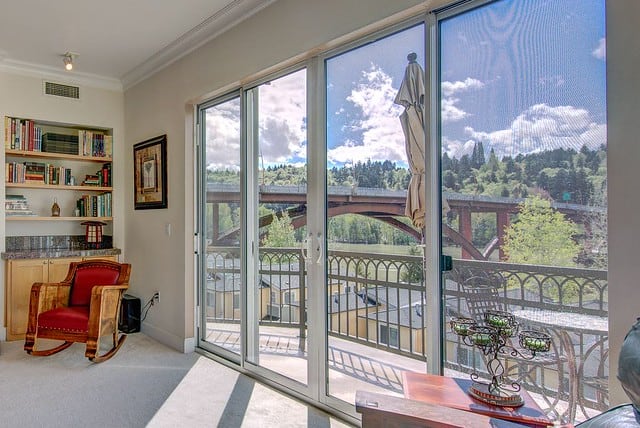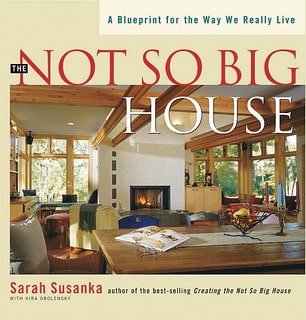Side hustles: The good, the bad, and the ugly

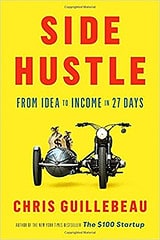
Side Hustle Nation
Fundamentally, there are only two ways to improve your financial situation: You can earn more or you can spend less. Most money writers focus on the "spend less" side of the equation. That's great, but there's only so much you can cut. Eventually, if you really want to pursue your goals with passion, you're going to have to earn more. "More income means more options," Guillebeau writes. "More options mean more freedom."
For many folks, a side hustle is a smart way to earn more. A side hustle, Guillebeau says, is "a moneymaking project you start on the side, usually while still working a day job. In other words, it's a way to create additional income without taking on the risks of going full throttle into the world of working for yourself."
Purpose and the value of money
I mentioned the other day that my financial philosophy has changed a bit since I left Get Rich Slowly in 2012. One of the biggest shifts is where I believe we should place our focus.
- In the olden days, I thought money itself was a fine focus. I wanted out of debt. To achieve that goal, I needed money. Today, I view debt reduction as a side effect, not a goal.
- After I got out of debt, I wanted to build my savings. To achieve that goal, I needed money. Today, I view savings as a side effect, not a goal.
- After I built a modest nest egg, I wanted to gain greater wealth. To achieve that goal, I needed money. Today, I view wealth as a side effect, not a goal.
After I gained greater wealth, I realized something. I'd been chasing the wrong thing. What I really wanted was happiness, and happiness isn't something you can just go out and grab. Just as debt reduction, savings, and wealth are side effects of certain choices, happiness too is a byproduct of our choices and the lives we lead. Happiness comes when our actions are aligned with our purpose.
Gradually, I came to understand that purpose was actually my goal all along. Truly, it's the goal for each of us. When we have a purpose, and when we're able to pursue that purpose with passion, everything seems to fall into place.
How to get what you deserve when filing an insurance claim
We're only three days in to the era of Get Rich Slowly 3.0, and already GRS readers are providing inspiration for articles. On Sunday's "I'm back" post, for instance, Amy wrote the following:
As I type this I'm camped out on my brothers sofa, having evacuated my home during the fires in Santa Rosa. I'd love an article in the future about insurance, preparing and recovering from disasters. Thankfully my house is still standing right now, but much of our neighborhood is gone. My home no doubt has smoke damage...
There are tons of people with similar questions after the recent hurricanes. And every day, families suffer individual tragedies when their homes burn down or nearby rivers flood. How do you handle insurance when disaster strikes?
My financial philosophy: The core tenets of Get Rich Slowly
As I resume writing at Get Rich Slowly, one of my goals is to share a unified theory of money. This is a big change from when I started the site in April 2006.
You see, 11-1/2 years ago, I didn't have a coherent financial philosophy. Not even close. Because of this, I was deep in debt and struggling to make ends meet on an average American income. I was lost in the woods. The only thing I knew was that all of the books I read seemed to say the same thing: "There's no reliable way to get rich quickly; however, there's a time-tested path to get rich slowly." That's why I started this website.
Back then, I was fishing around for anything that would work. I'd try any tip or technique that sounded plausible -- and even some that didn't. Here are a few examples:
Financial freedom is time freedom
For the past month, my entire life seems to have revolved around repairs and maintenance on the new house.
Some days, I'm the one doing the work: shoveling level ground for a planned writing shed, crawling under the house to check for leaks, pruning the overgrown hedges. Most days, however, I'm meeting with other folks: roofing contractors, siding contractors, HVAC contractors, plumbing contractors, pest control contractors. For the past thirty days, this has almost been a full-time job!
"You know, you're lucky," a friend said to me a few days ago.
The key to financial freedom
It's been a crazy couple of months for me. Since April, most of my time has been dedicated to selling our condo and buying a new home. Now, at last, the turbulent times are almost over. Kim and I closed on the condo last week, and we'll close on the "country cottage" next Monday. On July 1st, we'll move to the new place and a new chapter of our lives will begin.
As some semblance of normalcy returns to my world, I've been sorting through my Money Boss inbox. I love reading what you folks write to me (even if I don't always respond!), especially when you share your goals and dreams for the future.
Debt is Slavery
For instance, here's part of a message from a woman we'll call Irene. Irene recently experienced an epiphany:
How to Make Better Decisions
It's been a busy two weeks in the Rothwards household!
Last Monday, Kim and I had inspections on the home we want to buy. The results weren't good. The inspector concluded that, overall, the house shows evidence of deferred maintenance. Needed repairs have been left undone. Translation: Nearly everything related to the exterior of the home needs work. The roof needs to be replaced, as does the siding. The deck and fence are beginning to fail. And, worst of all, the foundation may be severely damaged.
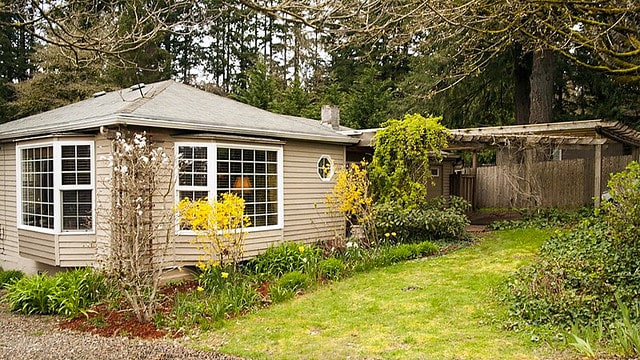
Your Personal Board of Directors
Real life has been a whirlwind recently. It sometimes takes me and Kim a while to make a decision, but once we do decide, we shift into high gear. So, after nine months of discussing the idea and another month of actual planning, we've spent the past ten days in a mad rush to prep our home for sale.
This morning, the listing for our condo went live.
The quest for the not-so-big house
Kim and I have spent the past couple of weeks hunting for a new house. While it's true that we love many things about our current place -- great neighbors, great neighborhood, great views, great walkability -- we've come to realize that it no longer fits our lifestyle and goals.
When I bought this condo in 2013, I was newly divorced and newly dating. It seemed like a sweet bachelor pad. When Kim moved in, things weren't perfect but we made do because the condo still mostly reflected our values. But something happened during our 15-month RV tour of the United States. When we arrived home, we realized that we had changed.
Picking the best online retirement calculator
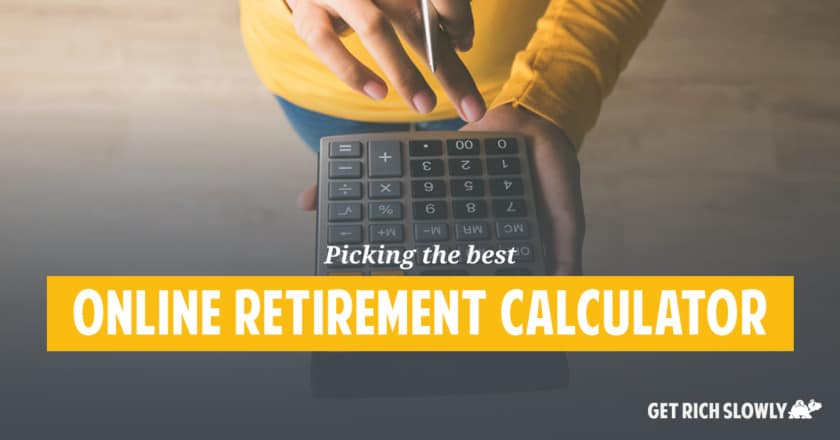
After my rant about how dumb it is to base your retirement needs on your income rather than your spending, you might guess that I hate most online retirement calculators. You are correct.
The vast majority of online retirement calculators use your current income to compute how much you need to save for retirement. It's dumb when financial advisers do this, and it's even dumber when automated programs do it. Retirement calculators tend to be dumb in lots of other ways too.
When computing how much to save for retirement, they tend to focus on current income rather than current spending. Plus, many of them have other problems -- like arbitrarily deciding that you shouldn't save more than 40% of your monthly income.
